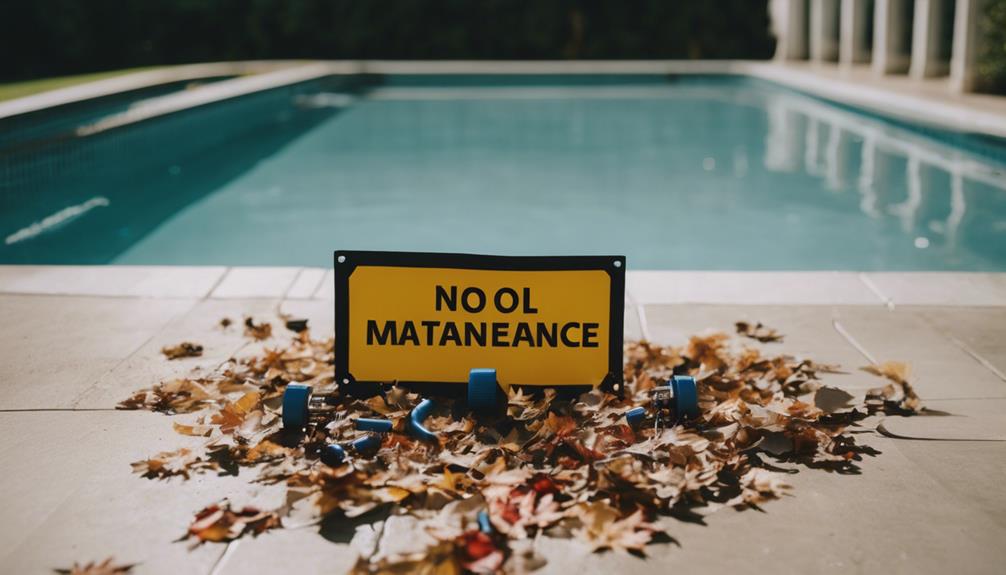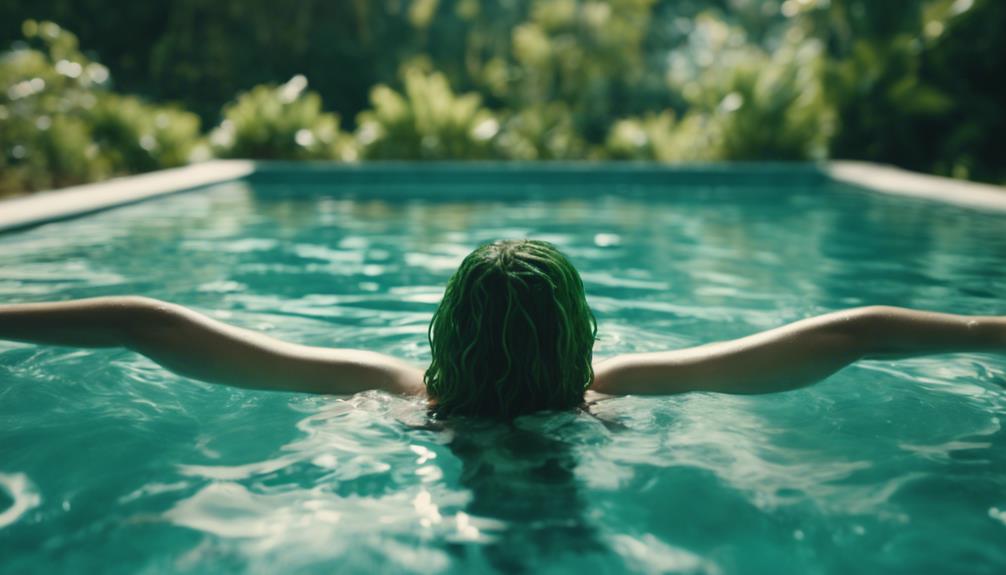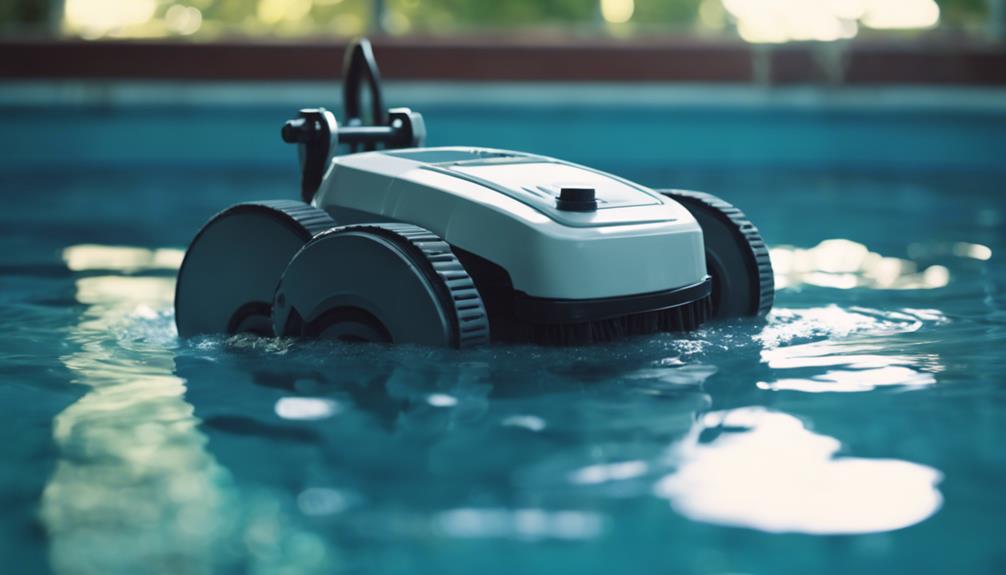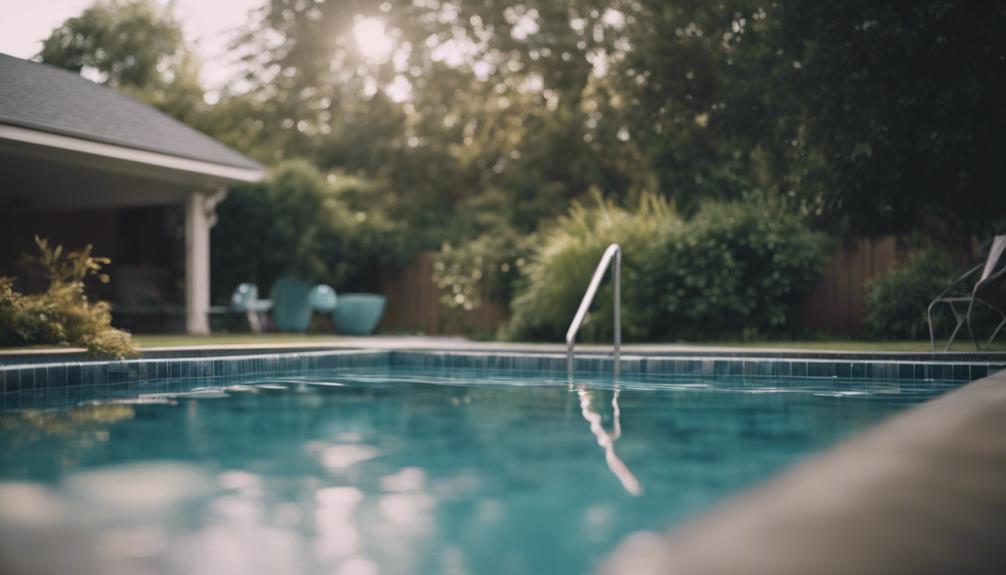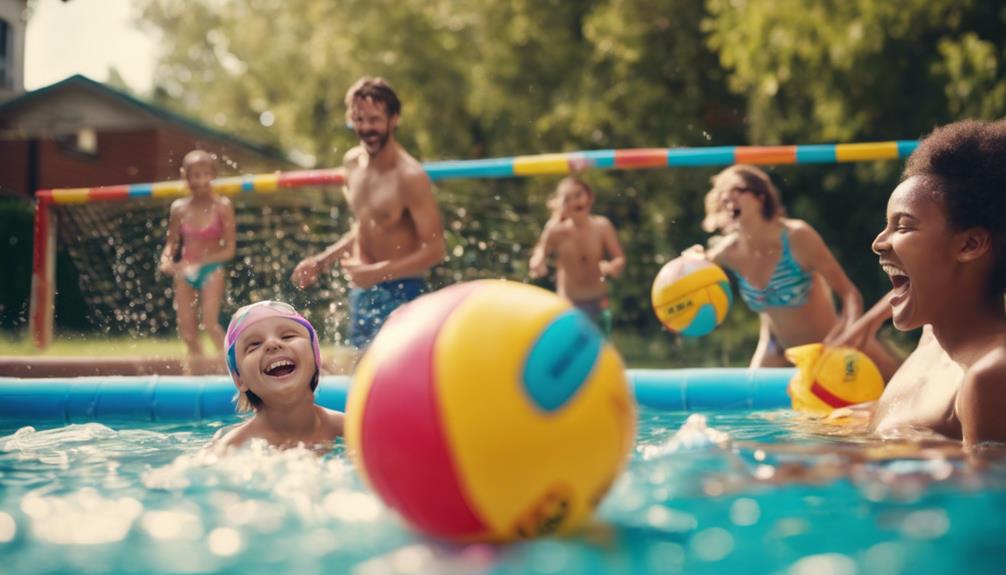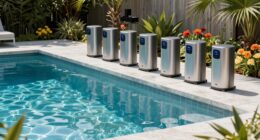To maintain your pool clean and enjoyable, prevent mosquito breeding by running the pump daily and circulating water. Safeguard pool chemicals from personal products like sunscreen by showering before and after swimming. Keep a debris-free pool by using a cover and skimming regularly. Opt for plastic or paper dishware for poolside dining to avoid glass hazards. To uphold cleanliness and water quality, test and balance the water, skim debris, and maintain the filtration system. Following these tips will help you guarantee a safe and welcoming pool environment.
Key Takeaways
- Avoid leaving stagnant water to prevent mosquito breeding.
- Protect pool chemicals from personal products like lotions.
- Use a pool cover to keep out debris and leaves.
- Opt for plastic or paper dishware to avoid glass breakage.
- Regularly maintain pool cleanliness and water quality.
Preventing Mosquito Breeding in Your Pool
To prevent mosquito breeding in your pool, it is vital to keep the pump running daily. Mosquitoes require stagnant water to lay their eggs, making pools a prime breeding ground.
By circulating the water regularly, you disrupt their breeding cycle and inhibit larvae growth. Additionally, maintaining proper chlorine levels and skimming for bugs can help deter mosquitoes from laying eggs in your pool.
Installing a pool cover when the pool is not in use is another effective measure to deter mosquitoes from accessing the water. By following these simple steps, you can significantly reduce the risk of mosquito breeding in your pool and ensure a safer and more enjoyable swimming experience for you and your family.
Protecting Pool Chemicals From Personal Products
Protecting pool chemicals from personal products is vital to maintain water quality and secure a safe swimming environment for all pool users. Substances like suntan lotion, soap, deodorant, and other personal hygiene items can disrupt the balance of pool chemicals, leading to issues such as algae growth or reduced sanitizer effectiveness. To prevent this, individuals should shower before and after pool use to remove any residual products.
Additionally, rinsing off before entering the pool can help decrease the introduction of these substances into the water. Regular skimming and maintaining proper chlorine levels are also essential in mitigating the impact of personal products on pool chemicals. By following these practices, pool owners can guarantee the longevity and effectiveness of their pool chemicals.
Keeping Pool Debris-Free

Maintaining a debris-free pool is essential for ensuring a clean and enjoyable swimming experience for all users. To achieve this, investing in a pool cover, preferably an automatic one, can greatly help in keeping leaves, branches, and other debris out of the pool.
Covering the pool at night or when not in use is also recommended to eliminate the entry of unwanted materials. By preventing leaves and branches from entering the pool, you can maintain a cleaner environment and reduce the time spent on cleaning.
Keeping the pool clean and debris-free not only enhances the aesthetic appeal of the pool but also contributes to a safer and healthier swimming environment for everyone to enjoy.
Safe Dishware Choices for Poolside Dining
For a hygienic and safe poolside dining experience, selecting the appropriate dishware is essential in preventing accidents and maintaining cleanliness. Opt for plastic or paper dishware near the pool to avoid potential hazards associated with glassware breakage. Plastic and paper options are lightweight and less likely to shatter, reducing the risk of injury and ensuring a safe environment for poolside dining.
Additionally, using safer dishware choices helps prevent bacteria buildup and clogging issues in the pool, maintaining water quality and hygiene standards. By choosing the right dishware materials, pool owners can enjoy their meals by the pool without compromising safety or cleanliness.
Maintaining a Clean and Safe Pool Environment
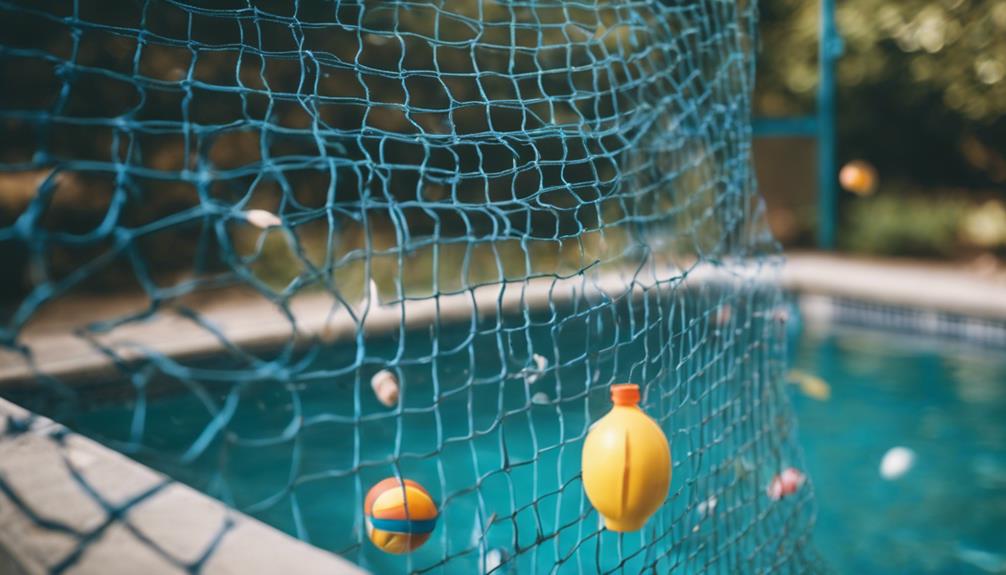
To uphold a hygienic and safe pool environment, proper maintenance practices are vital for ensuring ideal cleanliness and water quality. Regularly testing and balancing the pool water, along with cleaning and skimming debris, are essential tasks. Maintaining the pool's filtration system, pump, and chemical levels is essential to prevent the growth of harmful bacteria and algae.
Additionally, investing in a pool cover when the pool is not in use can help keep out leaves, insects, and other debris that can contaminate the water. By following a diligent maintenance routine and keeping the pool area clean, pool owners can create a safe and enjoyable swimming environment for themselves and their guests.
Frequently Asked Questions
Can I Use Essential Oils as a Natural Mosquito Repellent in My Pool?
Using essential oils as a natural mosquito repellent in your pool can be effective. However, oil-based products can disrupt pool chemicals. To maintain water quality, consider using oils sparingly and ensuring proper skimming and chlorine levels.
Will Using Sunscreen Affect the Chlorine Levels in My Pool?
Using sunscreen before entering the pool can affect chlorine levels. Oil-based products like suntan lotion can disrupt chemical balance. Regular skimming, showering before swimming, and maintaining proper chlorine levels help mitigate these effects, promoting a clean pool environment.
How Can I Prevent Leaves and Debris From Getting Into My Pool?
Preventing leaves and debris from entering your pool requires investing in a quality pool cover, preferably automatic. Cover the pool when not in use, eliminate debris by covering it, and guarantee a clean, debris-free pool environment.
What Are the Best Dishware Options for Poolside Dining?
For poolside dining, opt for plastic or paper dishware to prevent breakage and guarantee safety. Avoid glassware near the pool to minimize the risk of accidents. Choose suitable dishware options to enhance your pool experience.
How Often Should I Check and Adjust the Pool Chemicals for Safety?
Regularly check and adjust pool chemicals for safety by testing at least twice a week. Maintain proper pH levels between 7.2-7.6, chlorine levels of 1-3 ppm, and alkalinity between 80-120 ppm. Consult with a professional if unsure.
Conclusion
To sum up, by implementing proactive measures to keep unwanted items out of your pool, you can maintain a pristine and inviting swimming environment. From preventing mosquito breeding to protecting pool chemicals, each step plays an essential role in preserving water quality and equipment integrity.
By following these guidelines, you can guarantee a hassle-free and enjoyable pool experience. Ultimately, these strategies are vital to achieving a pool so clean, it sparkles like a diamond in the sun.

